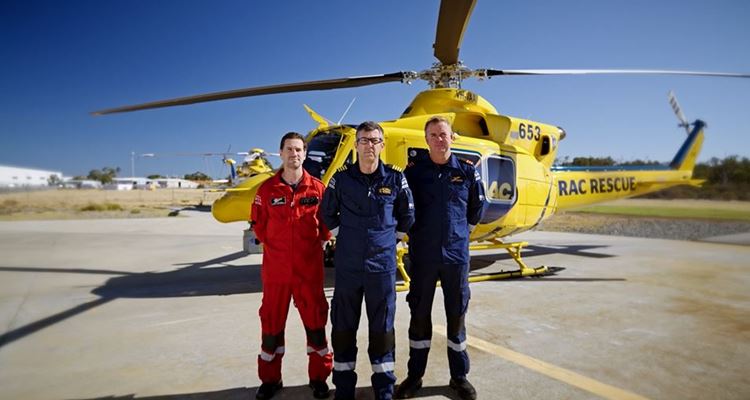Road safety plea

Have you considered what it would be like to witness motor vehicle crashes every single day?
This is the stark reality for the courageous people behind WA’s Emergency Rescue Helicopter Service, as well as the dedicated police, paramedics, firefighters, and volunteer personnel who answer the call when a crash occurs.
RAC Rescue Pilot Ron van Heerden estimates he has attended more than 100 road crashes during his six years with the service.
“Attending so many crashes has a big impact on the flight crew,” Ron said.
“We see some horrific injuries of people and their families, including severe head injuries, spinal injuries and sometimes amputations.
“A lot of the time, we have very good outcomes. Those keep us going, but sometimes, despite our best efforts, we don’t have good outcomes, and that stays with us—it’s always there.”
Whether cutting people from twisted car wrecks, working to treat and stabilise seriously injured people or clearing fuel and debris, Western Australia’s dedicated first responders see it all.
The consequences can be devastating, with fatalities and life-altering injuries affecting people young and old.
Once the immediate response is over, these emergency services personnel carry the weight of what they’ve seen and await the next call to do it all again.
For the sake of first responders who protect and assist us, we implore WA drivers to change their behaviours to avoid a crash.
Drive according to the conditions, wear a seatbelt, slow down and don’t drive distracted, tired or under the influence.
Tragically, 65 deaths have already occurred on WA roads in 2024.

Credit: Road Safety Commission
Ron urged WA drivers to consider the ripple effect of driver decisions on themselves, other road users and first responders who rush to their aid.
“Some of the common reasons for crashes are impairment from drugs or alcohol, fatigue, inattention and speed, which has a huge impact on the outcomes and the severity of the injuries that we face,” he said.
"We invest a great deal to respond, often venturing out in adverse weather conditions and putting ourselves at risk to help others, so people need to consider that. Do it for us.”
A range of support services, programs and resources are available to first responders to help build their psychological and physical wellbeing – but we can all play a part in reducing their exposure to traumatic incidents.
If you or someone you know has been affected by a crash, please call Road Trauma Support WA on 1300 004 814.
The RAC Rescue helicopters are sponsored by RAC, funded by the State Government and managed by the Department of Fire and Emergency Services.

